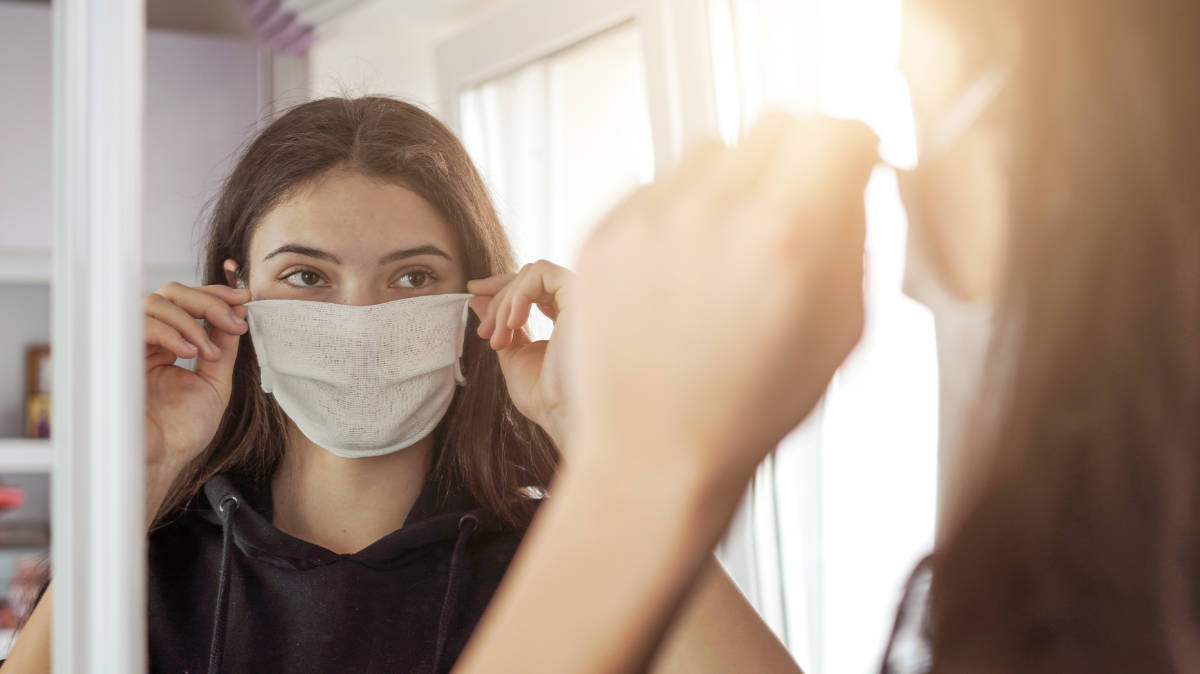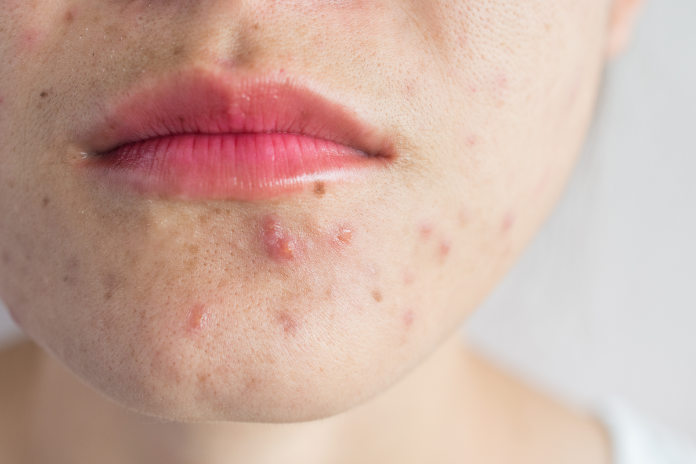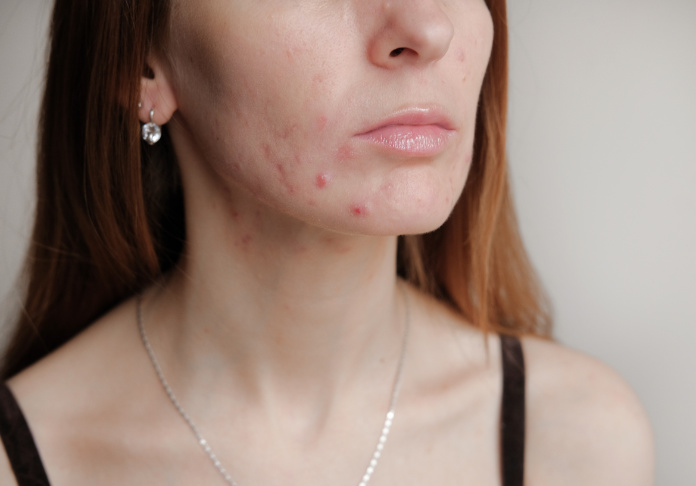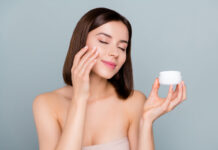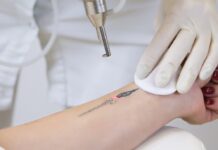As if being separated from loved ones and forced to adapt to life spent largely indoors wasn’t challenging enough, lockdown has caused an increase in skin issues for many people. Acne is the number one culprit. Even those who seldom had spots before are suddenly finding clusters springing up overnight. We find out what causes lockdown acne including stress, facemasks and skincare.
“Through my virtual skin consultations, people have reached out more than ever with problem skin during lockdown, and breakouts are one of the most common,” says Dr Catharine Denning, cosmetic dermatologist and Curel skincare ambassador.
So why are we getting more zits now? “This is likely to be multifactorial,” Denning says. “The skin is a complex organ and usually it’s a combination of factors that cause problems to flare-up.”
The good news is, no matter what the cause, there are numerous ways to tackle acne, and we’ve got the advice you need from three skin experts.
Causes of ance
Here are five possible reasons for your lockdown breakouts, and what you can do about them…
1. Stress
You might be wondering ‘does stress actually cause acne?’ The short answer is yes.
“During the lockdown there have been generalised reports of increased stress levels and negative effects on peoples’ mental health,” says Dr Mieran Sethi, specialist dermatology registrar with the NHS in London. “Skin health is intrinsically linked with mental health; there are many skin conditions shown to be exacerbated by stress, including acne.”
Unfortunately, an increase in acne can cause more stress, which in turn can make the acne worse. “The most effective way would be to find a way to minimise stress as much as possible, through exercise, meditation or whatever works for the individual,” says Sethi.
2. Diet
If you’ve been indulging in comfort foods or baking more cakes while in lockdown, all those sweet treats could be impacting your skin.
“One thing we know can lead to breakouts are foods that spike blood sugar levels,” says Denning. “I would never advise cutting out whole food groups in relation to treating skin, but a diet that’s healthy for you generally is also going to be healthy for your skin.
“Make sure you’re eating green and colourful veggies, as these are high in vitamin A and antioxidants.”
She also recommends eating wholegrain carbohydrates that provide a slow release of energy, and oily fish, as omega-3s and vitamin D are important for skin function.
“This all being said, if you eat one or two meals that don’t fit into this advice don’t beat yourself up,” she says. “Skin changes are multifactorial, and just by eating healthily you’re unlikely to completely sort out your skin issues.”
And if that Instagram picture looks inspiring, challenge yourself to make some smoothie or other healthy bowls to post on social media over lockdown. It’ll keep you motivated and keep your diet varied.
3. Face masks
“Increased condensation, sweat and oil under masks are a breeding ground for skin bacteria and clogged pores,” says Denning. “Keeping skin as clean and oil-free as possible will help prevent this occurring.
Regular cleansing, exfoliation with gentle acids such as PHAs, and skin barrier repair using ceramides, are all key steps to keeping skin blemish-free.”
Pro tip: You might want to consider using a hot towel for acne.
4. Weather
Even though it’s turning colder and cloudier, this doesn’t mean the sun isn’t still hard at work. “UV exposure can deplete the skin of moisture,” says Janine De Costa, Dermalogica education manager. “The result is that the skin instinctively produces more oil, which can lead to increased breakout activity.”
Don’t forget, you should be wearing suncream even in winter.
5. Skincare
With more time available due to being stuck at home, some people are spending longer on their skincare routines and experimenting with new products such as retinol, but that could be doing more harm than good.
“This over-processing of the skin can compromise the skin’s protective barrier leading to dehydration, sensitivity and increased breakouts,” says De Costa.
“I tell people to start by reducing your actives – and definitely stop using any oils. Rebuild the barrier using a light ceramide rich formulation skincare,” says Denning.
Kao Curel Face Lotion Moisture Facial Milk, Amazon.
She continues: “A simple, easy skincare routine is essential for dealing with acne. The first step is choosing a cleanser that contains salicylic acid to unblock the comedones (blocked sebaceous glands).
“Then use a gentle moisturiser, labelled as ‘non-comedogenic’, which ideally should be perfume-free and paraben-free, to reduce sensitivity. If possible, the moisturiser should contain niacinamide – an excellent active ingredient for acne-prone skin.
“For large pus-spots, Vichy Normaderm 10% sulphur paste is a gentle and efficient product to apply to these directly, at nighttime.
Vichy Normaderm SOS Anti-Blemish Sulphur Paste, Amazon.
Next steps…
If altering your diet, skincare routine and lifestyle doesn’t help, Denning recommends speaking to your GP. “There are excellent topical treatments for mild acne that can be prescribed, for example, those containing a topical retinoid, such as Differin.
“Acne that is resistant to topical treatment and a short course of antibiotic therapy, should be referred to secondary care Dermatology for consideration of oral Isotretinoin (Roaccutane).
“This can be prescribed for the most severe cases of acne with scarring, although there may be delays to initiation of patients on this medication during the lockdown period.”
You may also be interested in…
This article may include affiliate links to products and services where we may receive a small fee to support the running of this site if you make a purchase or is a sponsored article from one of our select editorial partners providing valuable advice and information to our readers.























































